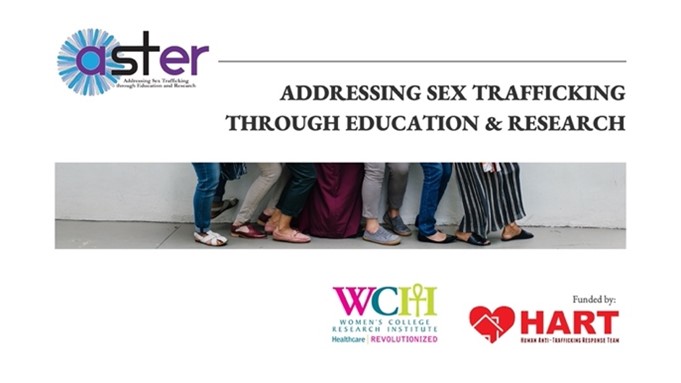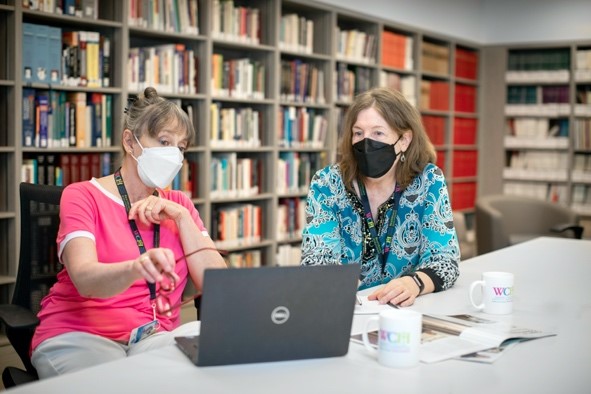By Brittany Ellington

February 22 marks National Human Trafficking Awareness Day. First established in 2021, it aims to recognize and bring awareness to sex and human trafficking and its impact on survivors, their families, and communities in Canada. While anyone can be affected by sex trafficking, it disproportionately impacts Indigenous women, girls, and 2-Spirit people, the precariously housed and LGBTQIA+ youth.
“When we use the term sex trafficking, we mean the recruitment, transportation, or harbouring of victims for the purposes of sexual exploitation,” noted Janice Du Mont, EdD. Sex trafficking is not only a human rights issue, but a public health issue as well.
When thinking about sex trafficking, Canada may not be the first place that comes to mind. However, the reality is that it is happening here, right within our own borders. According to the Canadian Women’s Foundation, 93 per cent of people in Canada that are sex trafficked are Canadian citizens. “In fact, Toronto, Halifax and Montréal have been identified as major hubs for sex trafficking,” explained Robin Mason, PhD.
Currently, there is little research on sex trafficking in Canada. Du Mont explains, “We recently developed ASTER – Addressing Sex Trafficking Through Education and Research to build on the evidence base needed to support survivors of sex trafficking and to improve services.”
Women’s College Hospital is a leader in the adoption of equity and trauma-informed approaches to care and research. With their extensive history of examining gender-based violence, this work extends Mason and Du Mont’s knowledge and expertise to sex trafficking.

“We are centering the voices of providers and women with lived experiences. Tailored and trauma-informed services are needed to support and care for survivors of sex trafficking,” Mason added.
In recognition of February 22nd, WCH Research is launching #AddressingSexTrafficking, a social media campaign. “#AddressingSexTrafficking aims to bring greater awareness to the challenges of supporting sex trafficked clients,” explains Du Mont. Over several weeks, insights from social service providers will be shared through various WCH social channels.
ASTER’s interdisciplinary team of staff and trainees representing public health, psychology, and social work are passionate about continuing their work to understand and report on strategies to better respond to the complex needs of sex trafficked clients.
ASTER is generously supported by HART (Human Antti-trafficking Response Team). HART is a not-for-profit organization founded in 2017 focused on raising awareness of sex trafficking in Canada and supporting the victims who survive it.
To learn more about their research to date, check out the following publications: